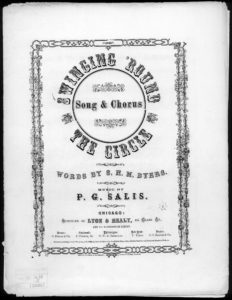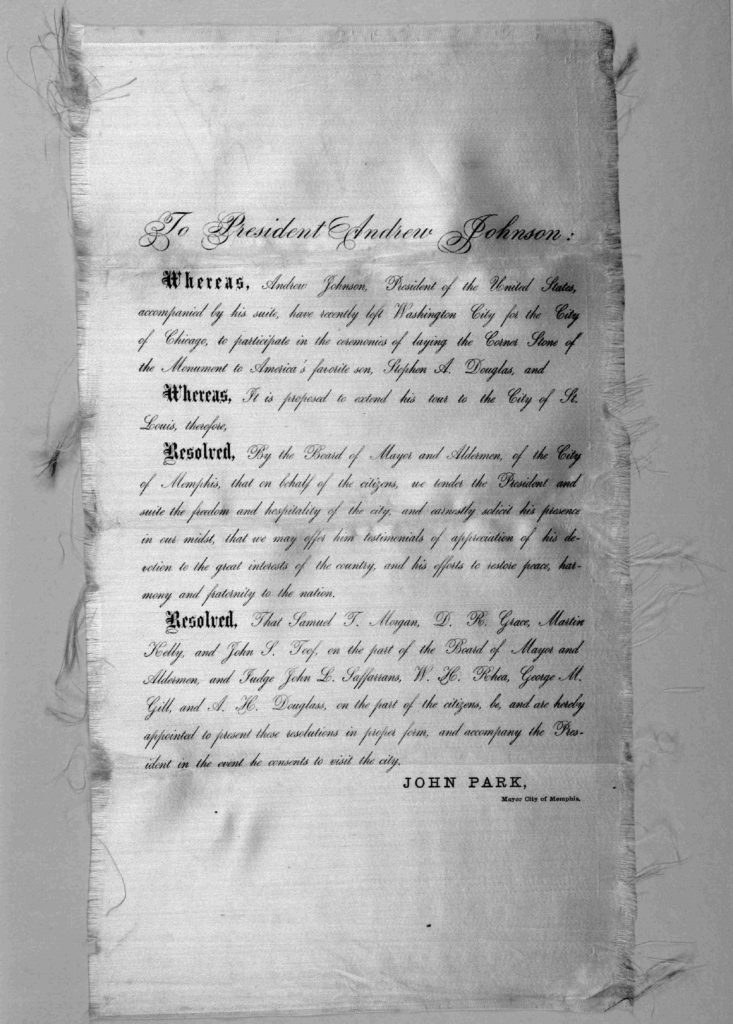150 years ago today President Andrew Johnson and a group of federal dignitaries began what would become known as the Swing Around the Circle, an eighteen day or so speaking tour in which President Johnson took his case to audiences in the East and Midwest and hoped to influence the 1866 midterm elections in his favor. The ostensible destination of the rail journey was Chicago for a ceremony to lay the cornerstone of a monument to the late Stephen A. Douglas:
Because Presidents had traditionally not undertaken political campaigning in the past, Johnson’s action was seen even before he began as undignified and beneath the office. Johnson’s advisors, aware that the President could get carried away in his own sentiments, pleaded with him to give only carefully prepared speeches; Johnson, as he had often done on the campaign trail, instead prepared a rough outline around which he could spontaneously speak. Once he began, however, the fiery oratory that had once helped his political fortunes now sank them.
Initially, Johnson was enthusiastically received, particularly in Baltimore, Philadelphia, and New York. …
The press nonetheless gave him overwhelmingly positive coverage throughout the first leg of the tour (although the circumstances made his customary introduction — “Fellow citizens, it is not for the purpose of making speeches that I now appear before you”—a particular laugh line).
In an August 30, 1866 editorial The New-York Times contrasted the popular approval of the president early in his tour in Baltimore, Philadelphia, and New York City with the radical press and politicians who were assaulting not just Andrew Johnson’s policies but the man himself. In Philadelphia the mayor and radical press belittled and attacked the president and his entourage (including Secretary of state William Seward), but the approving citizenry lined the streets along the president’s route. The Times expressed concern because most of the cities on the way to Chicago and back had radical newspapers that were “sending forth specimens of their venom and incentives to insult”. The Chicago Tribune had already written that Andrew Johnson had “the blood of loyal men upon his garments.”; the Tribune advised “loyal citizens to avoid him as they would any other convicted criminal.” The Times seemed nervous but concluded that the president was leaving Gotham that morning “backed by the will and sustained by the confidence of the citizens of the metropolis, and with the unfaltering reliance upon the popular heart of the cities and States yet to be visited.”
When folks in Memphis found out President Johnson was scheduled to visit St. Louis they invited him to stop by, so they could thank the president for his “efforts to restore peace, harmony, and fraternity to the nation.”


